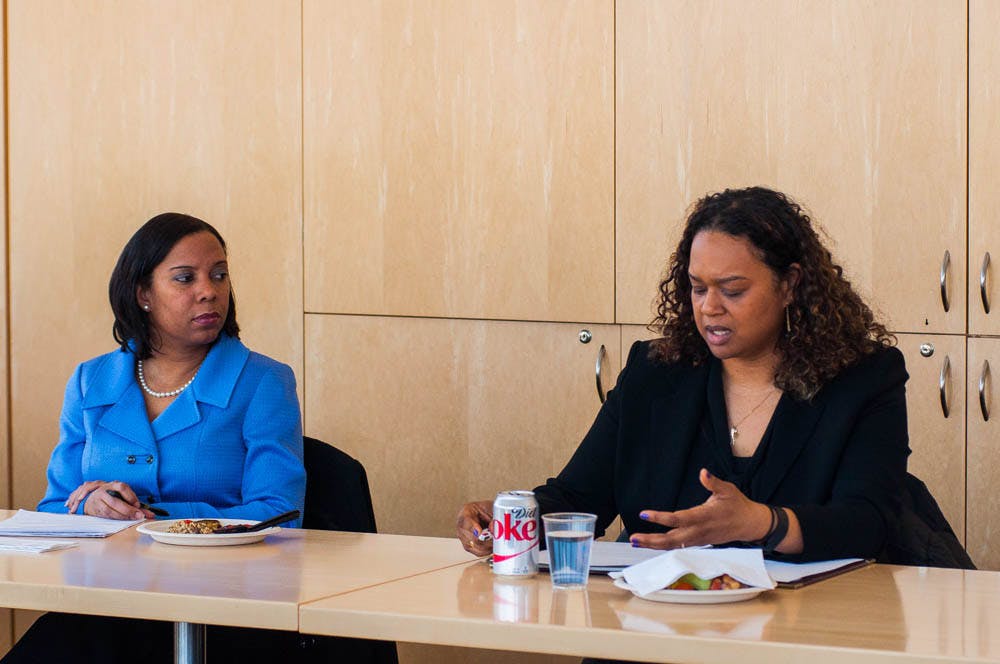“If women are being assertive, then (we’re told) we should be more humble. If we are more quiet, then (the media) says that we are not strong enough and that we need to find our voice. We cannot win,” said Providence City Councilwoman Sabina Matos.
Matos and Francoise Hamlin, associate professor of Africana studies and history, talked about their perspectives on women taking political action at an event hosted by Women, Empowered at the Watson Institute for International and Public Affairs Wednesday.
Matos explained that she entered politics “the same way many female politicians do — someone asked me to. … I never saw myself as a candidate,” she said.
Discussing female involvement in politics, Hamlin insisted that people “cannot be complacent about any of the gains women have made,” though they should not undermine the work women have done in the past. “Women must continue progressing and moving forward,” she said.
When asked about examples of effective activism efforts, Matos described her experiences fighting for hotel workers and child-care-provider campaigns.
Hamlin said she “paid no attention to the (International) Women’s Day” strike that was held March 8 but was present at the Women’s March on Washington in January. “Seeing how the administration ignores everything, (the Women’s Day strike) is not going to make a difference,” Hamlin said, though she supports the people who took part in the strike.
Hamlin believes that it is “important for young women coming of age to … be involved in something that is meaningful.” Her activism focuses on “being in the classroom, how I teach this work (and) how I can help students find their passion.”
In order for progress to continue for women in the political sphere, they need to “get involved in a campaign or volunteer for something (they) think is going to challenge the status quo,” Matos said.
Near the end of the event, Hamlin stressed the importance of coalition-building among activists. “How many people at the Women’s March turn up for Black Lives Matter? You have to show up for other occasions,” she said.
The event is part of a lecture series, hosted by the Women, Empowered initiative, which highlights the initiative’s goal “to create a space for women who are interested in politics and taking part in political action,” said Lucrezia Sanes ’17, co-founder of Women, Empowered.
After the election, the group “immediately saw people mobilizing politically against the new administration and (its) policies in a way we had not seen in our recent memory as young people,” and wanted to prompt discourse on campus, said Shavon Bell ’17, co-founder of Women, Empowered.
“(We) wanted to take a step back to critically discuss female political action,” Bell said. She added that the event specifically wanted to address “the simultaneous unity and disunity of the women’s coalition and its tendency to ignore more marginalized voices within the larger female demographic.”





